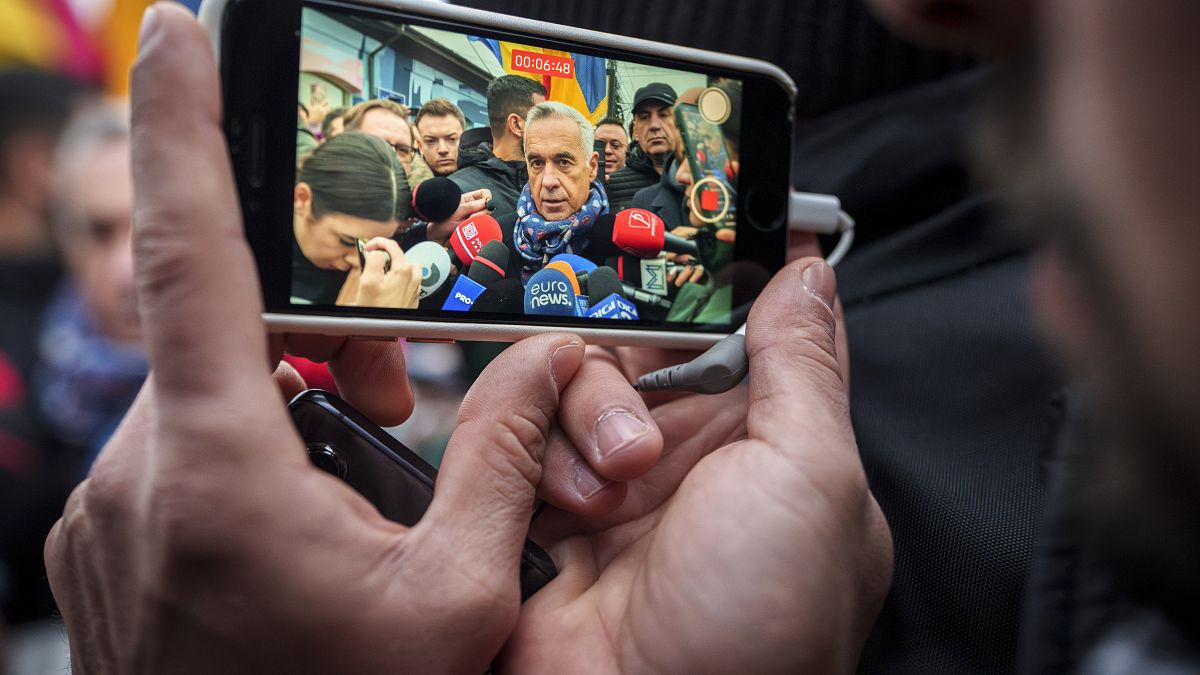The European Commission has launched formal proceedings against TikTok over potential breaches of the Digital Services Act, following evidence of Russian interference in Romania’s election. The EC is gathering data to determine if TikTok violated EU law.
The European Commission announced today the opening of formal proceedings against TikTok, suspected of breaching the Digital Services Act (DSA) by not adequately mitigating risks linked to the integrity of Romania’s election.
The Romanian presidential election on 24 November saw the unexpected victory in the first round of Georgescu, an independent nationalist and Eurosceptic candidate who was previously little known to the public. The election was annulled after the Constitutional Court received evidence of Russian interference in the voting process, particularly on TikTok, as provided by the country’s intelligence services.
The Commission’s concerns relate to how the social media’s recommendation algorithm works and the system of political advertisements, which require clear labelling.
This is only the first step in determining whether TikTok has breached the DSA. Now that formal proceedings have begun, the Commission will gather further information. If found non-compliant with EU law, TikTok could face a fine of up to 6% of its global revenue. The European Commission has not provided a timeline for when it expects to reach a conclusion.
“Whenever we suspect such interference, especially during elections, we have to act swiftly and firmly,” said Ursula von der Leyen, President of the European Commission. “Following serious indications that foreign actors interfered in the Romanian presidential elections by using TikTok, we are now thoroughly investigating whether TikTok has violated the Digital Services Act by failing to tackle such risks. It should be crystal clear that in the EU, all online platforms, including TikTok, must be held accountable.”
Content advertising on Georgescu proliferated on TikTok, a non-organic phenomenon, according to the Commission, which believes it may have been promoted by bots and fake accounts.
At the end of November, the Commission requested information from TikTok to determine what actions the platform had taken to reduce potential algorithmic bias in the election, marking the first stage of a possible investigation. The deadline was last Friday.
A week later, the Commission announced a “retention order”, requiring TikTok to hand over data on its recommendation systems from 24 November to 21 March for further analysis.
Finally, on December 6, following the declassification of Romanian intelligence documents on interference, the Commission issued a “request for urgent information”.
The Commission has already opened two other proceedings against TikTok. The first, in February, focused on the protection of minors, advertising transparency, data access for researchers, and the risk management of addictive design and harmful content. In a separate proceeding last April, TikTok voluntarily suspended the development of its TikTok Lite app, which would have rewarded users for time spent scrolling after concerns about the app’s potential impact on mental health and addiction risks were found to conflict with the DSA by the Commission. This latter case is now de facto settled, as TikTok has withdrawn the deployment of TikTok Lite.
In april, the European Commission open an investigation on Meta, in the framework of the DSA, regarding how Instagram and Facebook tackled disinformation during the European Election campaign.
“We’ve protected the integrity of our platform through over 150 elections around the world and continue proactively addressing these industry-wide challenges,” a TikTok spokesperson told Euronews, adding that the company had provided the European Commission “with extensive information regarding these efforts, and we have transparently and publicly detailed our robust actions.”
“We do not accept paid political advertisements, we proactively remove content for violating our policies on misinformation, harassment and hate speech, and continue to work with the European Commission as well as regional and national authorities to address requests and discuss concerns,” the TikTok spokesperson said.
This article have been modified to include a statement from TikTok.
Read the full article here


